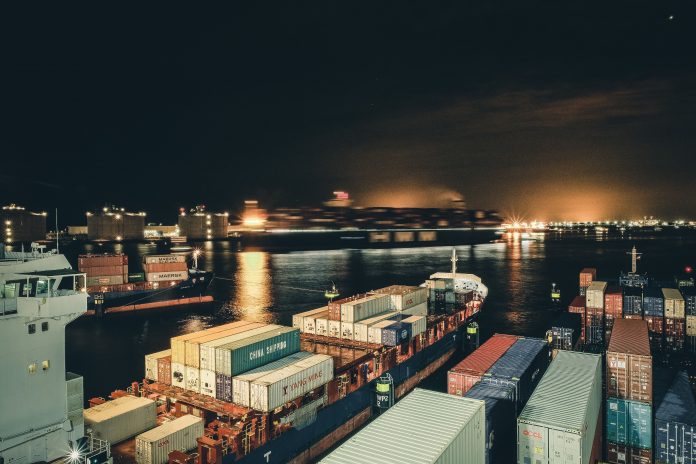Members of the World Ports Climate Action Program (WPCAP) decided on a new series of climate change actions at the organisation’s virtual CEO conference on 2 February.
[s2If is_user_logged_in()]WPCAP focusses on clear actions to combat climate change. Port coalitions work on specific projects, involving as much as possible shipping lines, terminals and energy providers in order to maximise the impact, said a WPCAP statement.
The first agreement made at the conference was on the topic of enhanced energy efficiency. The group noted work being undertaken by the IMO Global Industry Alliance (GIA) to support low carbon shipping and subject matter experts from ports, terminals and shipping. This work is about identifying nine measures that ports can take to reduce greenhouse gas emissions from shipping. These measures will first be discussed with interest groups and advocacy organisations from both the ports and shipping sector by the end of February during an IMO GIA meeting.
CEO’s agreed that each port would at least implement one measure this year, ranging from speed and dead weight optimisation to facilitating main engine repairs and hull cleaning during cargo operations.
In addition, WPCAP highlighted that power-to-ship has the clear potential to enhance air quality and reduce emissions while vessels are in port. “Ships can switch off their own power generation and make use of, preferably, green energy infrastructure supplied by port and terminal organisations,” explained the port of Rotterdam.
The working group assessed the financial benefits if ports collaborated in power-to-ship coalitions. Substantial cost reductions are possible if technology is used at a large scale and the pace of implementation is increased in a co-ordinated manner, according to WPCAP, which said that Hamburg, Antwerp, Le Havre and Rotterdam will work together on investment plans and jointly approach ship owners as power-to-ship means adjustments both in ports and on ships.
Port of Hamburg CEO Jens Meier noted, “We have learned so much from Los Angeles over the years making the first steps with power-to-ship in Hamburg. That is the power of this port network.”
Moreover, since last October, Rotterdam has had a power-to-ship strategy for seagoing vessels in place. In particular, the city of Rotterdam and the Port Authority have jointly developed a plan to have a large number of seagoing vessels ‘plugged-in’ by 2030 when berthed, while over the next five years, a series of projects will be initiated to accelerate and scale-up up shore power.
Another subject that was raised at the conference was the importance of policy instruments. WPCAP stressed that they remain a key tool to stimulate emission reductions in the maritime industry, using for instance incentives, pricing policies and regulations.
Robin Silvester, president and CEO of the Vancouver Fraser Port Authority, encouraged the working group to consider how they can align port incentive programmes around common themes of criteria focused on CO2 reduction. “With over 60 ship incentive programmes offered by ports worldwide, I am keen to see how we can streamline and simplify access to incentives so ship owners can realise the full potential benefits available across all ports within their trade route,” he said.
Gene Seroka, executive director of the Port of Los Angeles, supported a co-ordinated approach, arguing, “There are a host of options to consider with respect to incentives. It’s well worth our time to share best practices and see if a common approach makes sense.”
Last but not least, on the topic of accelerating and growing the use of sustainable marine fuels for deep-sea/ocean-going vessels, the ports made an agreement to continue their collaboration with all their customers.
CEOs also committed to intensify the need for alternative fuels in their own engagements with, for instance, shipping lines. Finally, the database that has been put together on cargo handling equipment for the overall way forward to realise climate neutral ports will continue to be used in engagement with especially terminal operators, according to an announcement.
“The outcome is a proof point that we remain action-oriented and as a network of ports very relevant. In identifying pathways for the future we have made new steps; hence we continue to make a difference,” commented Allard Castelein, CEO of the Port of Rotterdam Authority, who hosted the session.
WPCAP, which was launched in September 2018 at a global climate conference in San Francisco, has planned its next CEO conference for the upcoming October. Membership of WPCAP includes; Antwerp, Barcelona, Gothenburg, Hamburg, HAROPA port of Le Havre, Long Beach, Los Angeles, New York/New Jersey, Rotterdam, Valencia, Vancouver, and Yokohama.
[/s2If]
[s2If !is_user_logged_in()]Please login or register to read the rest of the story[/s2If]







